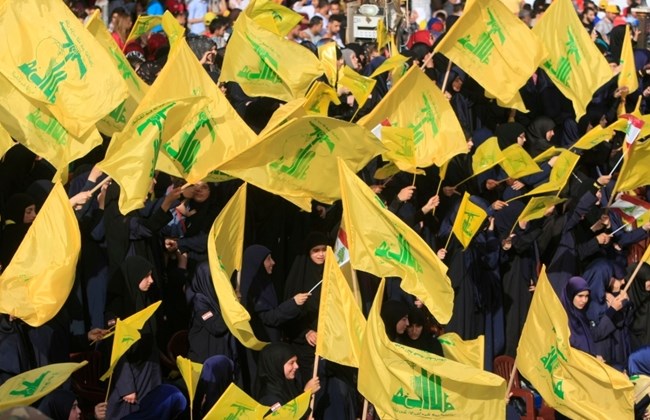Lebanon may pursue Hezbollah Men designated as terrorists by Saudi Arabia and the U.S.
The Daily Star/May. 29, 2015 |
BEIRUT: Interior Minister Nouhad Machnouk has said Lebanon may take measures against two Hezbollah officials designated as terrorists by Saudi Arabia and the U.S. government for allegedly spreading “chaos” in the region. “The Lebanese government will ask Saudi authorities to provide it with the files of the two Hezbollah officials – Khalil Harb and Mohammad Qabalan – in order to take the local necessary measures,” Machnouk told Saudi daily Al-Watan in remarks published Thursday. He said there was “full cooperation” between Lebanese and Saudi security agencies.
Saudi Arabia announced through its state news agency Wednesday that it had designated Harb and Qabalan as terrorists over their involvement in spreading “chaos and instability.” SPA said Harb was a military commander in charge of Hezbollah’s activities in Yemen while Qabalan had been convicted by an Egyptian court in absentia in 2010 for activities in the country.Riyadh had imposed financial sanctions on the two men, including freezing their assets and banning Saudis from any dealings with them, according to SPA. Lebanese Industry Minister Hussein Hajj Hasan, who belongs to Hezbollah, swiftly rejected the Saudi designation, saying “the source of terrorism has no right to accuse others of terrorism.”
The United States welcomed the Saudi sanctions, saying Washington had also designated the two men in 2013 for overseeing “violent operations” in the Middle East. “Today’s step taken by Saudi Arabia reflects the close counterterrorism and information-sharing cooperation we enjoy and look forward to extending further,” said Adam Szubin, U.S. Treasury acting undersecretary for terrorism and financial intelligence. The U.S. Treasury Department in August 2013 designated Harb and Qabalan as members of Hezbollah’s leadership responsible for “operations throughout the Middle East.” The Treasury Department singled out Harb as a leading figure of Hezbollah’s military wing.
According to a press release at the time, in the years prior to Israel’s withdrawal from south Lebanon in 2000, Harb served as a deputy commander of Hezbollah’s central military after which point he supervised military operations inside Israel, Jordan, Cyprus and Turkey. In 2006, Harb was Hezbollah’s chief of military liaison with the Palestinian factions and Iran, the Treasury Department said. In the summer of 2006, he was given command of Hezbollah’s special operations unit in south Lebanon which fought the Israeli army that year, it added. By 2010, Harb became an adviser to Secretary-General Sayyed Hasan Nasrallah, it said.
By 2012, he was responsible for the group’s Yemen activities, as well as a commander of a Lebanon-based special unit that focused on Israel, the press release added. In the summer of 2012, according to the Treasury Department, Harb was involved in the movement of large amounts of money to Yemen, through Saudi Arabia and the UAE. Qabalan was a cell leader who once served as the head of a Hezbollah infantry platoon, it said. In 2008, as a leader in Hezbollah’s Unit 1800, Qabalan was coordinating the activity of a “terrorist” cell in Egypt, the Treasury Department said. In April 2010, an Egyptian court sentenced Qabalan in absentia to life imprisonment for his involvement in the cell, which was subordinate to Hezbollah’s Unit 1800, it said. As of late 2011, Qabalan worked in a separate Hezbollah covert unit operating in the Middle East, the press release added. The U.S. Treasury Department’s 2013 designation also blacklisted alleged Hezbollah members Mohammad Kawtharani and Mohammad Yusuf Ahmad Mansour.






















